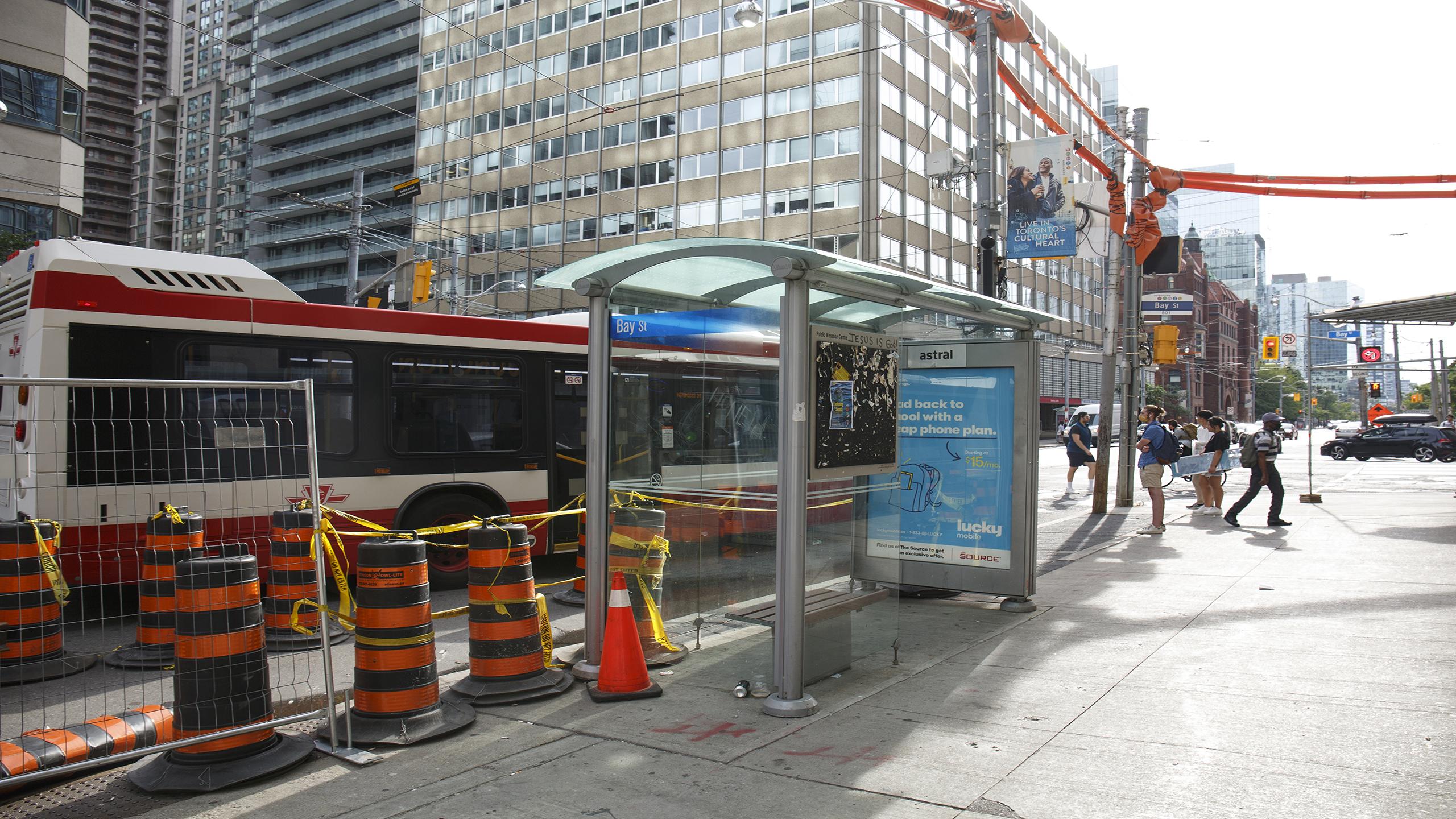By Vanessa Tiberio
Commuter students at Toronto Metropolitan University (TMU) are dealing with the impacts of transit reduction and construction as they return to fully in-person learning for the first time since the start of the COVID-19 pandemic.
With in-person classes resuming and people going back to work, commuters are noticing an uptake in delays and busyness on public transportation, causing them to readjust their schedules in anticipation of cancellations and delays.
Katherine Rita, a second-year accounting and finance student, travels about an hour to get to campus. She said the prospect of getting to class late and experiencing transit delays makes her worried for the full return to in-person learning.
“The [Toronto Transit Commission] TTC is probably one of the most unreliable transportation methods. There are so many delays and so many subway stops not getting service.”
TTC CEO Rick Leary said in a statement that the TTC anticipates a rider surge in September as students return to school and more people return to in-office work.
According to the statement, the TTC predicts a 10 to 15 per cent increase in the number of riders using their services within the coming weeks and months.
In response to the surge, the TTC announced it will be increasing the frequency of its subway, bus and streetcar services, including restoring three-minute train service on Lines 1 and 2.
Rita said she is excited by this announcement as she is looking forward to less busy trains.
“You don’t want to have to stand with all of your heavy textbook[s],” she said. “After a long day of classes, all you want to do is sit down.”
Fudail Syed, a second-year computer engineering student, said he’s noticed an increase in riders on his 45-minute GO train ride from Brampton, Ont.
Syed said the train gets so busy that it’s often difficult to find a seat, leaving passengers to stand for the full duration of the ride.
“In the winter semester, there were a lot of empty seats and I used to study on the GO train, but I can’t do that now if I’m standing,” he said.
Currently, Metrolinx only has plans to increase GO Bus frequency along with line-specific adjustments.
When they were asked about plans to increase services on GO Transit lines, Metrolinx directed The Eyeopener to their blog posts.
“For GO Bus customers, Metrolinx is increasing bus frequency and adding seasonal service for post-secondary students, among other schedule changes,” their blog post reads.
GO Transit’s seasonal bus services for post-secondary students include special routes to schools outside of the Greater Toronto Area, meaning that TMU students don’t get to enjoy the addition of the special routes.
Students also expressed concerns that the removal of mask mandates on public transportation may render their trip unsafe.
Erica Wu, a fourth-year RTA new media student, said she felt especially nervous about taking public transportation because of this increased risk.
“[The] majority of people aren’t wearing masks. And as someone who hasn’t gotten COVID, I want to make sure that my chances are not as high, but there’s only so [much] I can do,” she said.
Rita echoes these concerns stating, “A lot of people didn’t wear a mask, and that made me really scared especially living at home with people who are immunocompromised.”
Tanuson Rajakumar, a second-year business management student, has a commute that takes him about an hour to get to campus.
He said he’s considered driving to school before but it’s not a great option because of increased driving expenses such as gas, parking and idling in traffic.
“I’m pretty sure it would take you longer to drive downtown versus taking the GO train at this point. It’s just not worth it,” he said.
Other TMU students have felt the same way and have come to the same conclusion.
Rita said that for her, driving is off the table.
“Even if I get a parking pass, I don’t have eyes on my car all the time and then I have to pay for insurance and gas. It’s just so much more than just the simple Presto card tap that I have to do.”













Leave a Reply